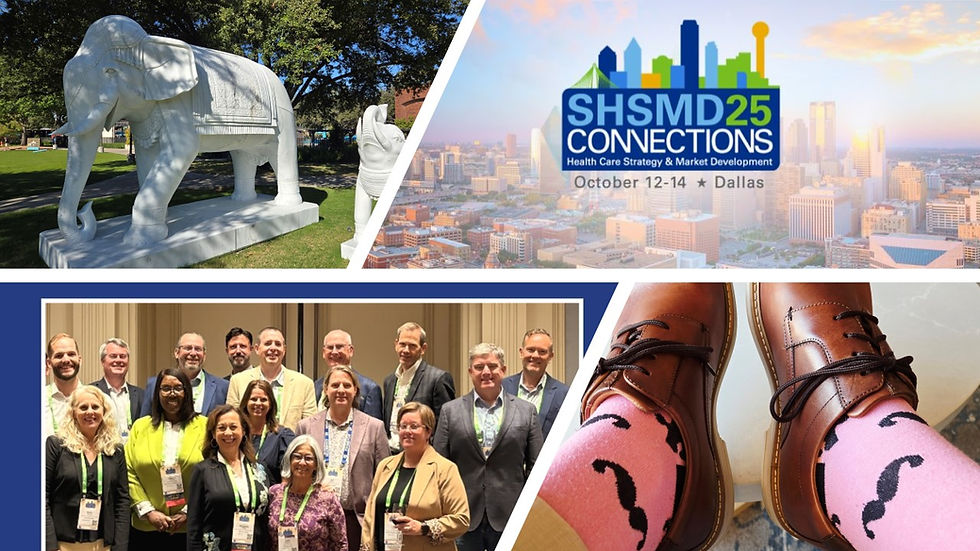Logic vs. emotion in the COVID-19 era
- Alan Shoebridge

- Jun 15, 2020
- 3 min read

I’ve always been fascinated by why human beings act the way they do. Furthermore, as a professional marketer and communicator, having that natural curiosity about human behavior has been especially beneficial. What I’ve encountered both personally and professionally is that most people’s actions are driven more by emotion than logic. It's also a fact that many highly intelligent people fail to recognize and act upon.
There are numerous examples of emotional decision-making happening with COVID-19, but the most obvious is the issue of wearing a mask. Yes, there are some people who cannot wear a mask due to health issues, and for them not doing so is a logical decision. For everyone else, the only reason NOT to wear a mask is solely due to emotion.
Admittedly, the initial guidance from health agencies was really unclear at the start of the pandemic as people were advised at first not to wear a mask. In retrospect, this recommendation seems to have been done mostly as a way to conserve PPE and not because masks were ineffective. However, at this point all the guidance is clear and recent studies confirm that mask use is vital. This article provides some of the key findings:
“A team of researchers in Texas and California compared Covid-19 infection rate trends in Italy and New York both before and after face masks were made mandatory. Both locations started to see infection rates flatten only after mandatory face mask measures were put in place, according to the study published Thursday in the Proceedings of the National Academy of Sciences.
The researchers calculated that wearing face masks prevented more than 78,000 infections in Italy between April 6 and May 9, and more than 66,000 infections in New York City between April 17 and May 9.”

Despite this clear evidence and strong guidance from the CDC advocating the practice, public mask use in the US – even in places where COVID-19 cases are high – seems pretty sporadic. In my recent journeys outside, I would say it’s probably around 60% and I’m sure that varies by state. Although the reasons for it are many – making a political statement, succumbing to personal vanity, not wanting to be told what to do, folding in the face of peer pressure, etc. – the underlying factor is always emotional. Nobody who can wear a mask, but won’t do so today is making a logical decision. They are making an emotional decision.
Although we might not want to admit it, this bias towards emotional decision-making in general is recognized by many experts who study human behavior. This article (pre-COVID), offers some valuable perspective on that:
"Michael Levine of Psychology Today, says rationality only represents about 20% of human decision-making. He explains: 'It is said that emotions drive 80% of the choices Americans make (emphasis mine), while practicality and objectivity only represent about 20% of decision-making. Oh, and forget about making a decision when you are hungry, angry, lonely or tried ... emotion wins 100% of the time and will likely push you in the wrong direction.”

An approach that works
As marketers and communicators, we need to understand that most of the time people are operating on emotions, not logic. Although we might be approaching the situation expecting a “logical” decision or action, “emotion” is going to carry the day for quite some time during our COVID-19 response. Whether it’s encouraging people to wear a mask, being safe by practicing effective social distancing or ultimately getting vaccinated, we will need to appeal to emotions more strongly than we do to logical decision-making.
You can tell some people that the equation a + b = c will solve a particular problem, but if their personal mental equation for the same problem is a + b = z, no amount of trying to convince them to change their mind using logic will work. The best approach is to first understand what is driving their emotional response and then adjust your strategies to target the trigger(s). This approach reminds me of my favorite reflections from Thich Nhat Hanh about dealing with difficult people.
"Blaming has no positive effect at all, nor does trying to persuade using reason and argument. That is my experience.
No blame, no reasoning, no argument, just understanding.
If you understand, and you show that you understand, you can love, and the situation will change."
As we move forward in the weeks and months to come, keep that advice in mind. If you count on logic alone to win the day, you will be sorely disappointed. Seek to understand first and then communicate what matters most to those you are trying to persuade.



Comments